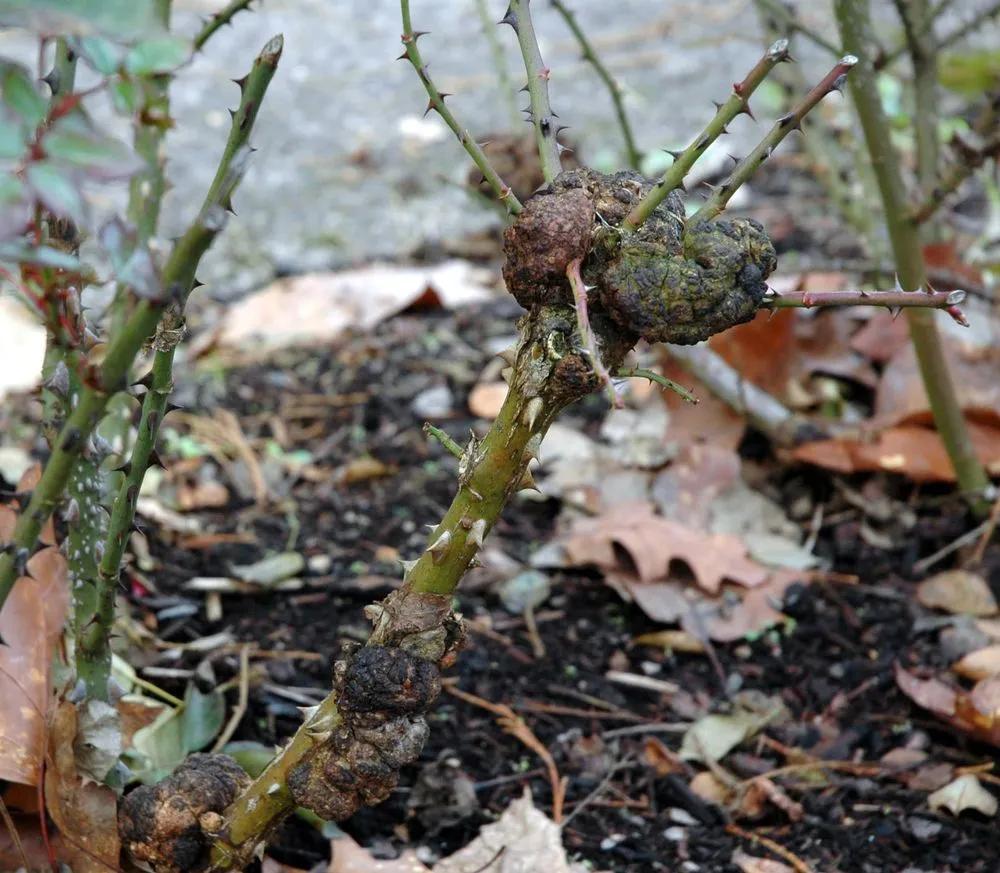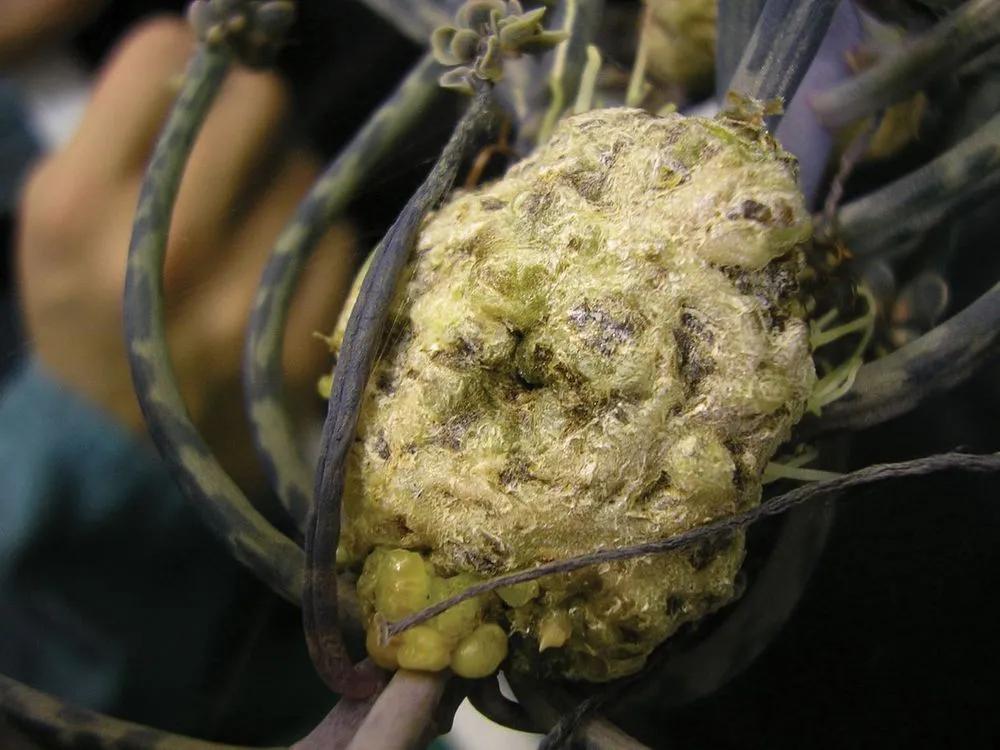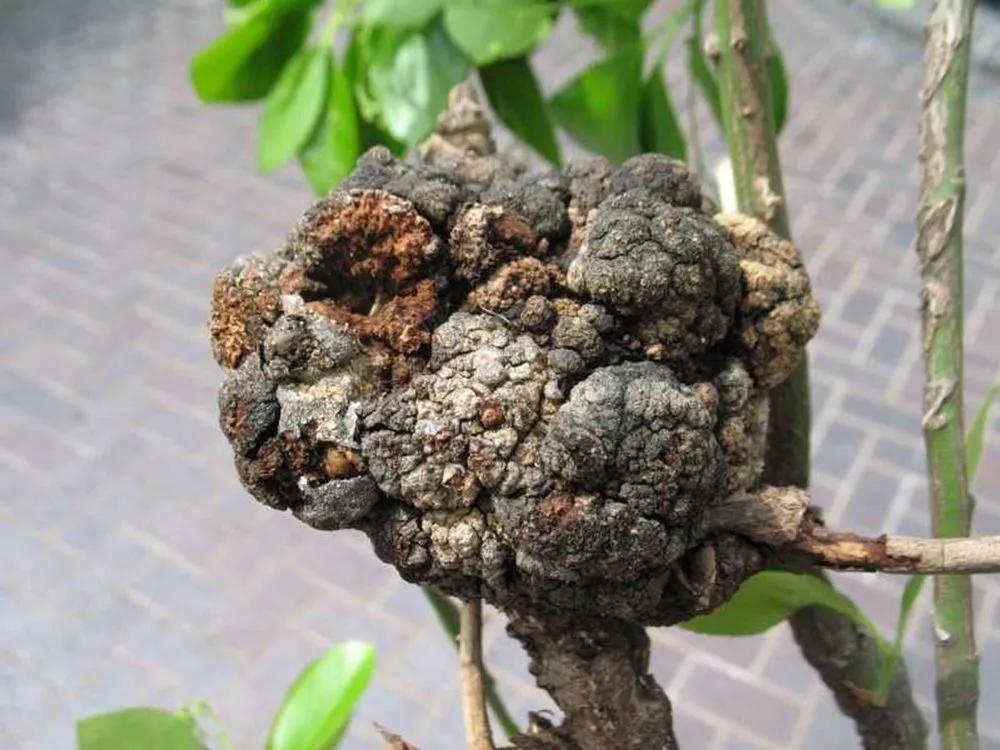Agrobacterium tumefaciens is a type of Gram-negative soil bacterium of the family Rhizobiaceae, which is a known pathogen of many plant species, causing crown gall disease, a type of plant tumor. Known also as bacterial root cancer, galls hinder the movement of water and nutrients in plants. Because of the large number of plant species it affects, the bacterium is an important threat to agriculture. The main factor of pathogenicity is this bacterium's biological ability to transform the host plant's cells.
The Agrobacterium causes the formation of the tumor, the so-called crown galls, in plants. An agrobacterial transformation, which occurs through this soil-dwelling A. tumefaciens is the result of root penetration that becomes possible because of damage. Because of it, the transformed cells, due to an imbalance of synthesis, begin uncontrolled growth and synthesize products that are a source of nutrition for a dangerous bacterium. This disease is characteristic of many agricultural crops such as grapes, sunflowers, beets, horseradish, rhubarb, carrots, and tomatoes, along with many more fruits and berries.



